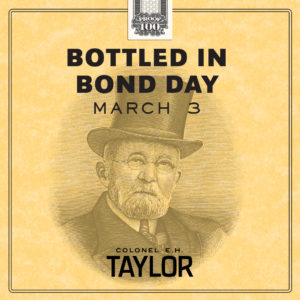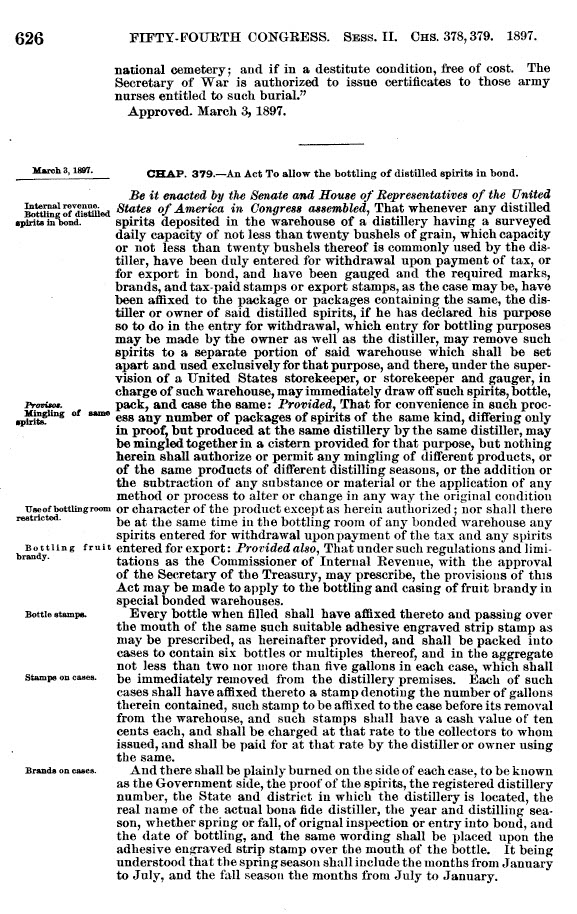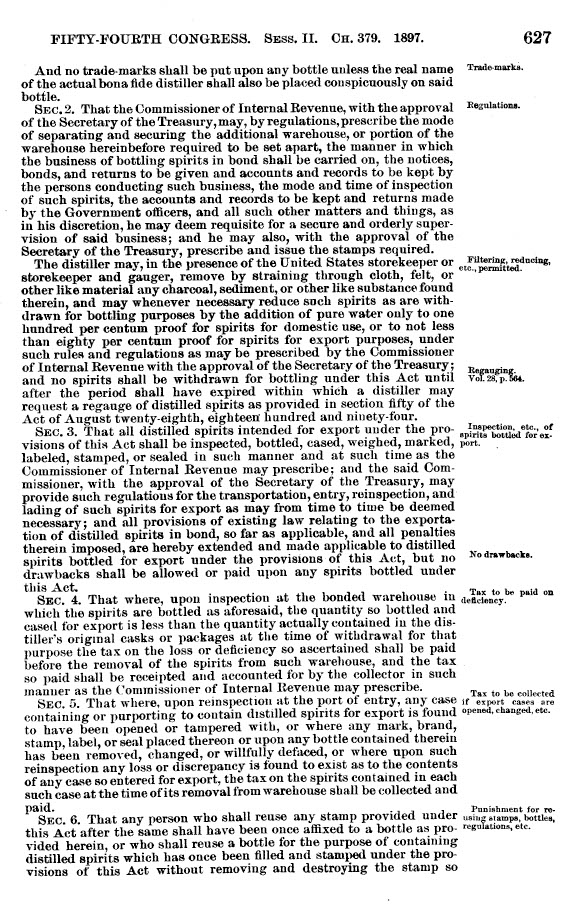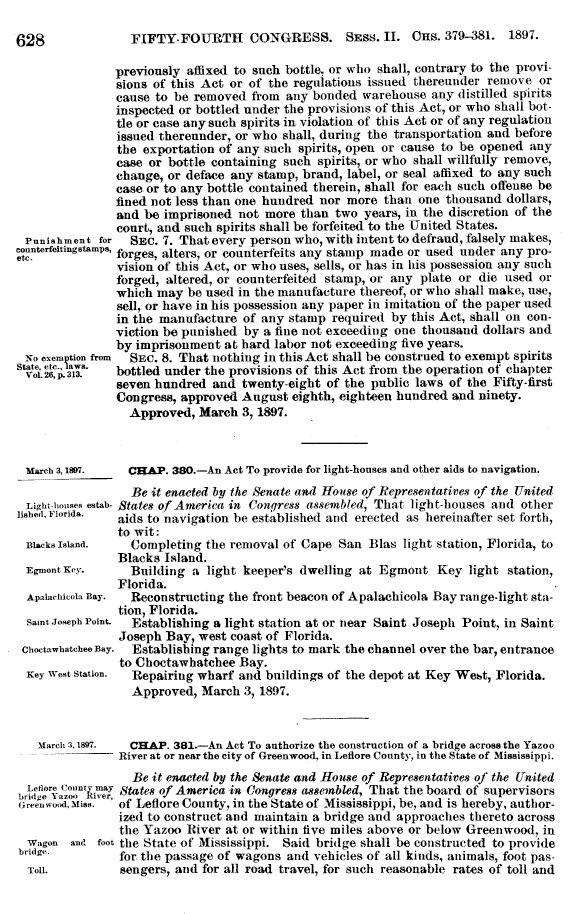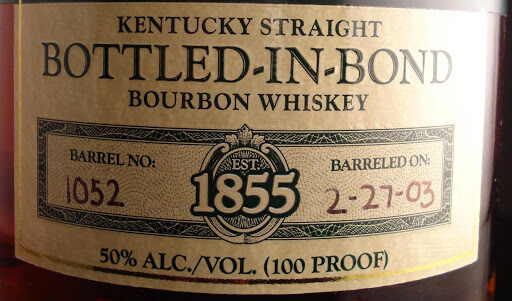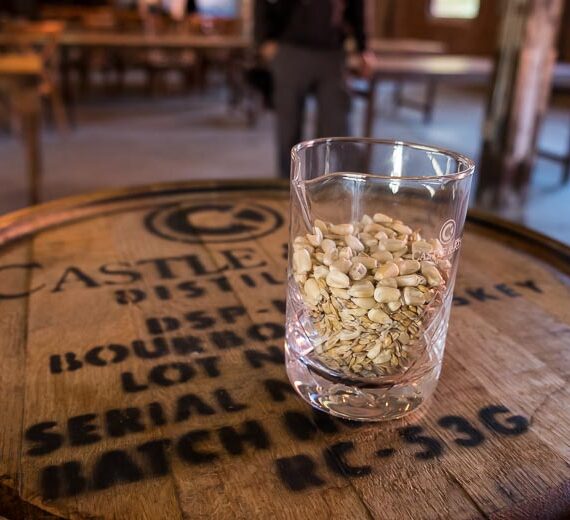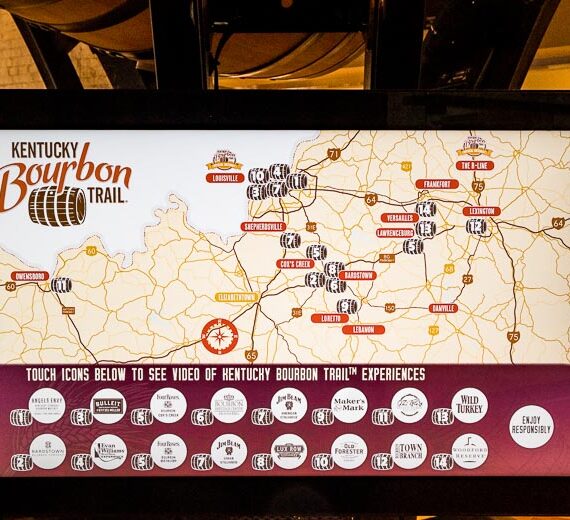Bottled in Bond Act Law and Legal Definition
Bottled-in-Bond Act of 1897 are rules that require spirits like whiskey to be aged and bottled according to a set of legal regulations. The primary purpose of the Bottled-in-Bond Act of 1897 is to guarantee that the product the consumer was buying was really whiskey, according to a standardized definition. The Act requires the spirit to be the product of one distillation season and one distiller at one distillery. It must be bottled and stored in bonded warehouses under the U.S. government supervision for no less than 4 years. The purpose of this measure is to allow bottling of spirits under such circumstances and supervision as will give assurance to all purchasers of the purity of the article purchased. Treasury agents are assigned to control access to the bonded warehouses at the distilleries. The law prohibits addition or subtraction of any substance or material or the application of any method or process to alter or change in any way the original condition or character of the product, except the reduction to proof with water. The law also requires that the packages that contain bottled in bond spirits be of definite content and that the alcoholic strength of the spirit must not be less than 50 percent by volume. The green stamp over the cork which is used gives the name of the distiller, the location of the distillery, the quantity of spirits in the bottle. The security which the consumer gets by this Act has caused a continually increased sale of spirits bottled in bond. The Bottled-in-Bond Act has made the United States government the guarantor of the whiskey’s authenticity.
Source: uslegal.com
